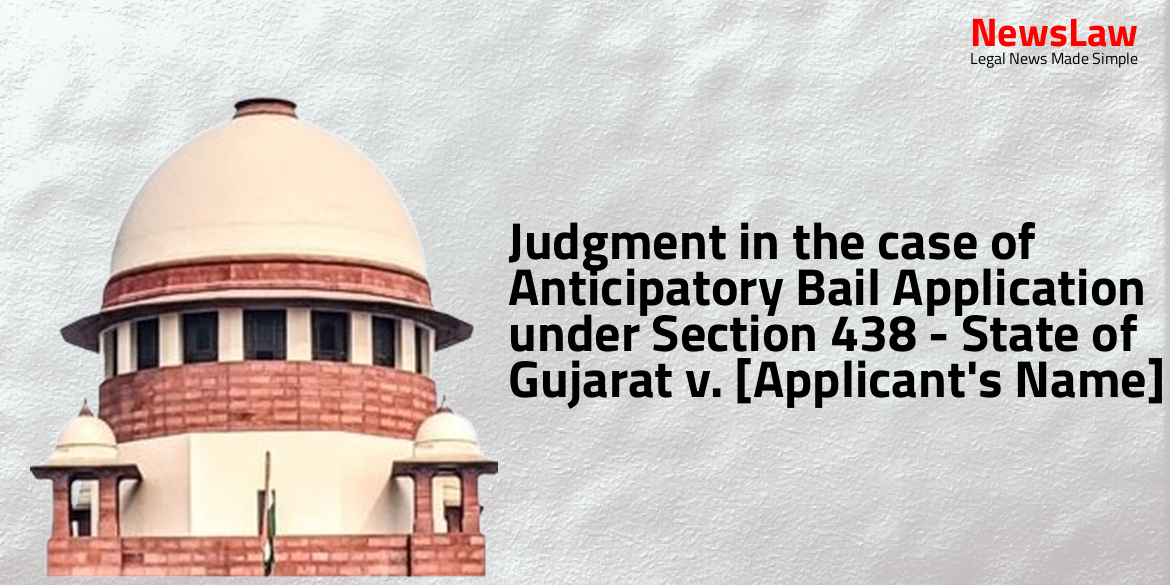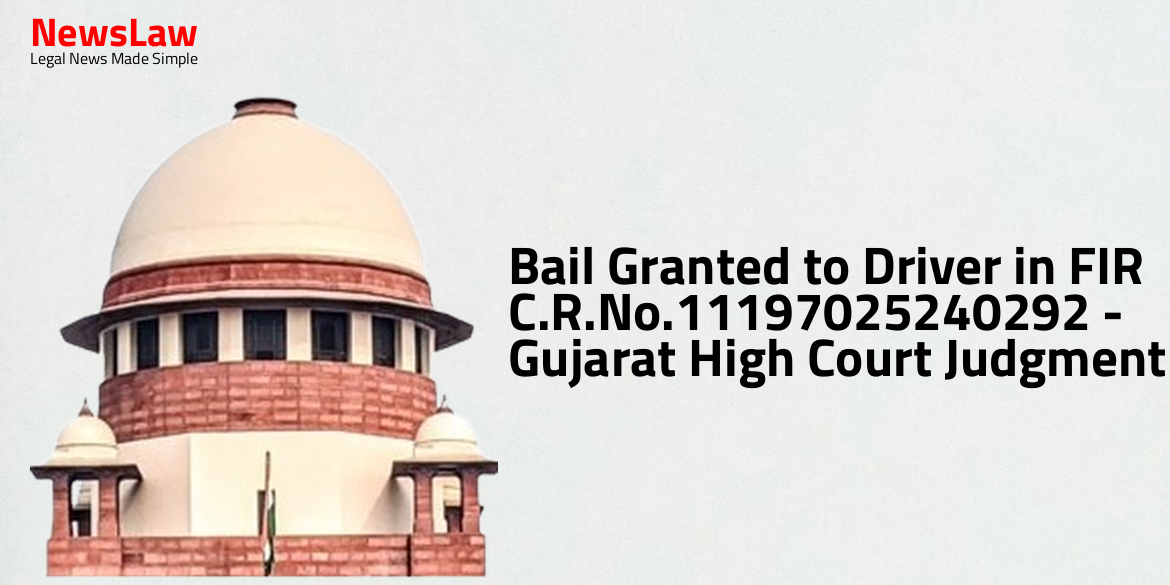In a significant legal ruling by the Gujarat High Court, the judgment in the case of Anticipatory Bail Application under Section 438 has been pronounced. The State of Gujarat petitioned against [Applicant’s Name], seeking denial of anticipatory bail. The court’s decision sets a precedent in ensuring fairness and justice in such cases. Read on to delve into the details of this noteworthy judgment.
Facts
- The applicant accused has filed for anticipatory bail under Section 438 of the Code of Criminal Procedure, 1973.
- The FIR in question is C.R. No.11214042231055 of 2023 dated 27.07.2023 registered with Olpad Police Station, Surat Rural.
- The charges against the applicant include Sections 65-A, 65(e), 81, 98(2), and 116-B of the Prohibition Act.
- The learned Additional Public Prosecutor has waived the service of notice of Rule on behalf of the State of Gujarat.
Arguments
- The applicant’s advocate argues that the applicant is falsely implicated in the alleged offence with no evidence linking him to it.
- It is claimed that no further evidence needs to be recovered from the applicant, making custodial interrogation unnecessary.
- The applicant is sought as a wanted accused in the FIR, but with no specific role assigned to him.
- The Additional Public Prosecutor opposes anticipatory bail, stating the applicant has a history of similar offenses and is involved in the current one.
- Custodial interrogation of the applicant is deemed necessary due to his prima facie involvement.
- The applicant has no prior criminal record and is cooperating with the investigation.
- The FIR alleges the applicant was to receive a large quantity of liquor, but nothing incriminating was found in his possession.
Analysis
- The Court must exercise discretion judiciously, cautiously, and strictly based on established principles.
- Factors to consider for bail application include prima facie evidence of the accused’s involvement, nature and gravity of the accusation, severity of potential punishment, risk of absconding, accused’s character and means, likelihood of reoffending, potential witness influence, and risk to justice.
- An elaborate examination of evidence and detailed reasoning that may prejudice the accused should be avoided at the bail granting stage.
- The applicant is accused in the FIR but there is no evidence to substantiate the allegation of being the proposed receiver.
- No past antecedents are found in the applicant’s possession since the FIR was filed in 2023.
- Allegations state the applicant was the proposed receiver, but the liquor in question was already recovered from the co-accused.
- No recovery or discovery is needed from the applicant.
- The decision to allow the application is based on precedent cases like Siddharam Satlingappa Mhetre vs State of Maharashtra and Sushila Aggarwal v. State of Delhi.
Decision
- Applicant must furnish address to investigating officer and court, and not change residence until the case is disposed.
- Applicant must not leave India without court permission and deposit passport with Trial Court.
- Investigating Agency can apply for police remand despite bail.
- Applicant must be present before Magistrate on all hearing dates regarding police remand.
- Upon completion of police remand, applicant to be set free immediately.
- Trial Court should not be influenced by observations made by the High Court during bail.
- Rule is made absolute to the above extent.
Case Title: UMESH NARAYANBHAI PATEL Vs. STATE OF GUJARAT
Case Number: R/CR.MA/8899/2024



